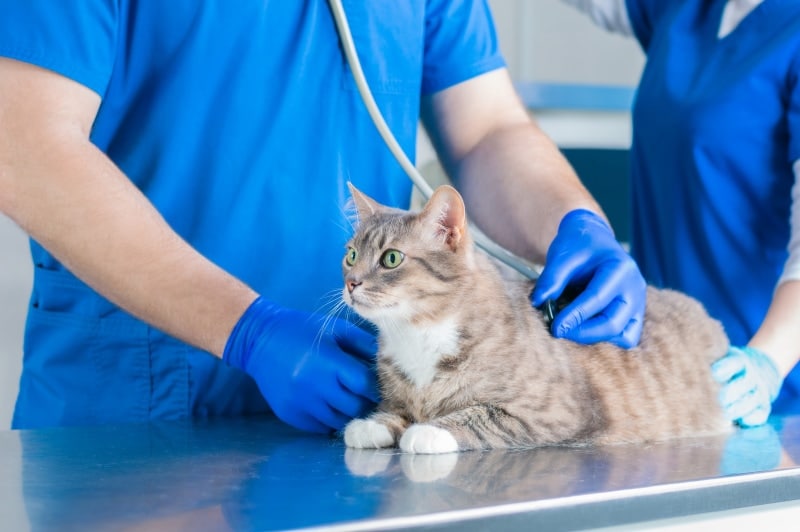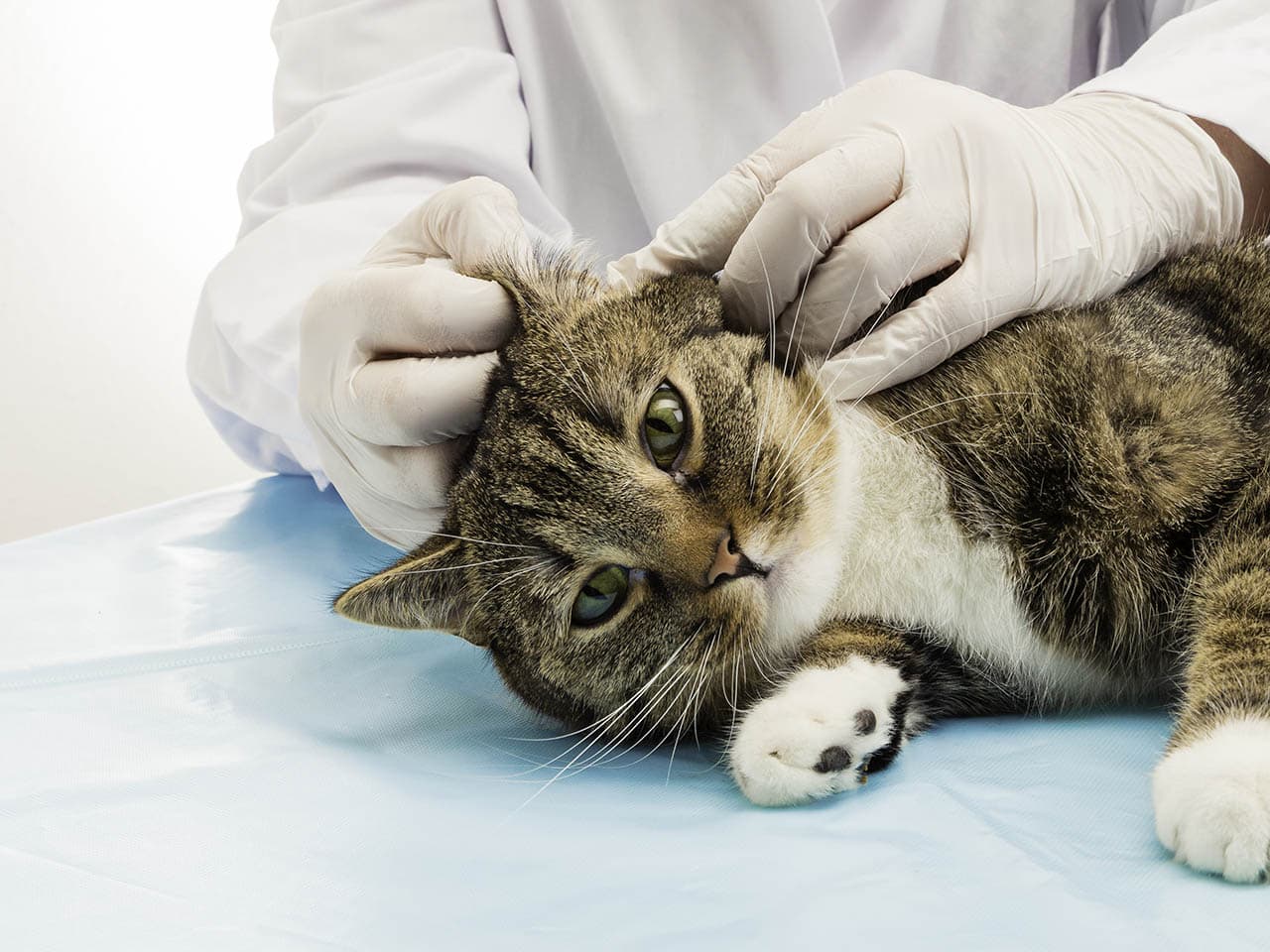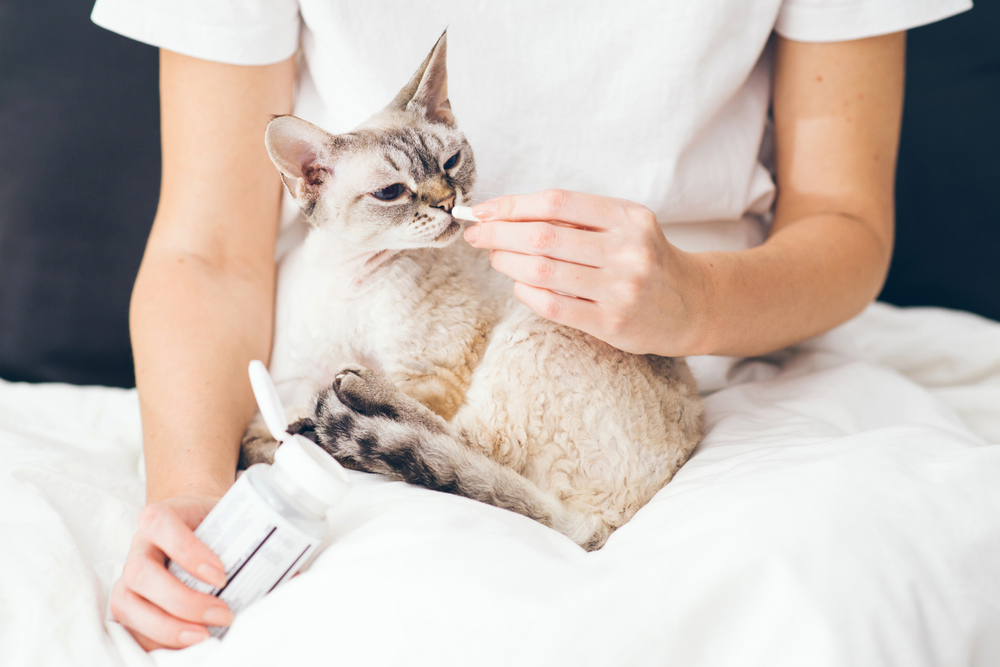Click to Skip Ahead
Cats can experience all sorts of issues when it comes to their urination and litter box habits, and it can be frustrating to know that your cat is experiencing health issues. Two terms commonly used when describing urinary concerns with cats are feline lower urinary tract disease (FLUTD) and feline idiopathic cystitis (FIC). This article will dive into these two terms and what they mean to your feline companion. Let’s get into the details!
- FLUTD: Broad term for different diseases that impact the lower urinary tract. Can be one of many issues.
- FIC: A specific disorder that falls under FLUTD. Inflammation of the bladder.
Overview of FLUTD
Feline lower urinary tract disease is a broad term that encompasses numerous diseases that impact the lower urinary tract, all of which cause similar signs. The lower urinary tract refers to the urinary bladder and the urethra. Examples of diseases or illnesses that can be considered FLUTD include urinary tract infections, bladder stones, neoplasia, and idiopathic cystitis (FIC), among others.
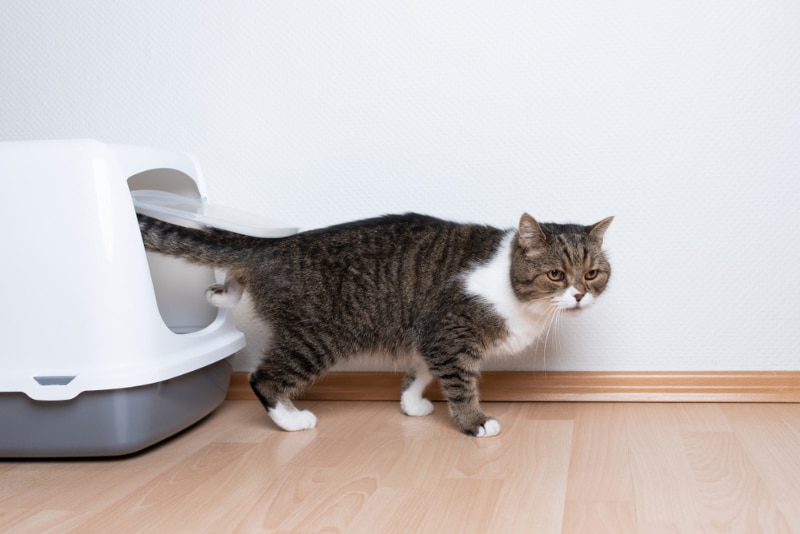
Clinical Signs of FLUTD
- Straining to urinate
- Blood in urine
- Inappropriate elimination
- Pain
- Decreased urine voiding or blockage
- Excessive grooming of urinary opening
Diagnosing FLUTD
Diagnosing a specific cause of FLUTD is imperative, as this determines treatment plans. The first step in diagnosing FLUTD in a cat with urinary signs is a physical examination by your veterinarian. Your veterinarian will thoroughly look your pet over, and the bladder will be palpated gently to check for tautness.
Following a physical examination and review of patient history, your veterinarian will want to evaluate a urine sample. The urine sample may be obtained through a cystocentesis or natural voiding. Cystocentesis is a procedure that allows urine to be pulled directly from the bladder using a needle and syringe, often guided by an ultrasound. A urine sample obtained through cystocentesis helps avoid contamination of urine.
Urinalysis
A urinalysis will help identify signs of infection, including bacteria, blood, and white blood cells. In the absence of cells suggestive of an infection, cystitis may be suspected.
Bladder Ultrasound
An ultrasound of the bladder is a helpful modality, as it allows a doctor the opportunity to evaluate the health of the bladder wall. This diagnostic can often identify bladder stones, clots, and even tumors.
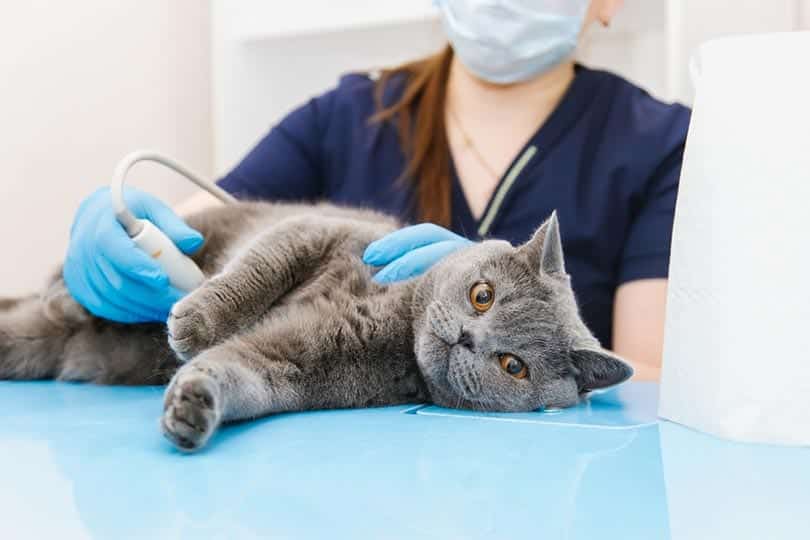
Radiographs
If bladder stones are suspected, a radiograph may be done to identify how many stones are present and if they extend into the urethra.
Treating FLUTD
Treatment of FLUTD will be dependent on the underlying cause. Treatment can range from a course of antibiotics for an infection to surgery in the event of bladder stones. If a blockage is present, the patient will require hospitalization and a urinary catheter for several days. Supportive care is often also initiated, which often includes fluid therapy and pain medication. In some situations, depending on the underlying cause of FLUTD, a dietary change may be recommended.
Overview of Idiopathic Cystitis
FIC is a specific example of FLUTD. FIC causes inflammation of the bladder despite the lack of an infection. It is estimated that two-thirds of patients with FLUTD have FIC. In FIC, the underlying cause of inflammation of the bladder is not identifiable. In suspected FIC patients, stress has often led to FLUTD signs.
Diagnosing FIC
Cats suffering from FIC will exhibit the clinical signs outlined above. Diagnosing FIC will often involve using the modalities listed above. However, affected cats will not have an identifiable cause of bladder inflammation like a stone or infection. Again, stress is thought to play a role in the development of FIC.
The history of cats with clinical signs of FLUTD will be very valuable, as cats with FIC typically have experienced stress. Examples of changes that may have stimulated stress include changes to the household dynamic, travel, boarding, a dietary change, new litter boxes or litter, etc.
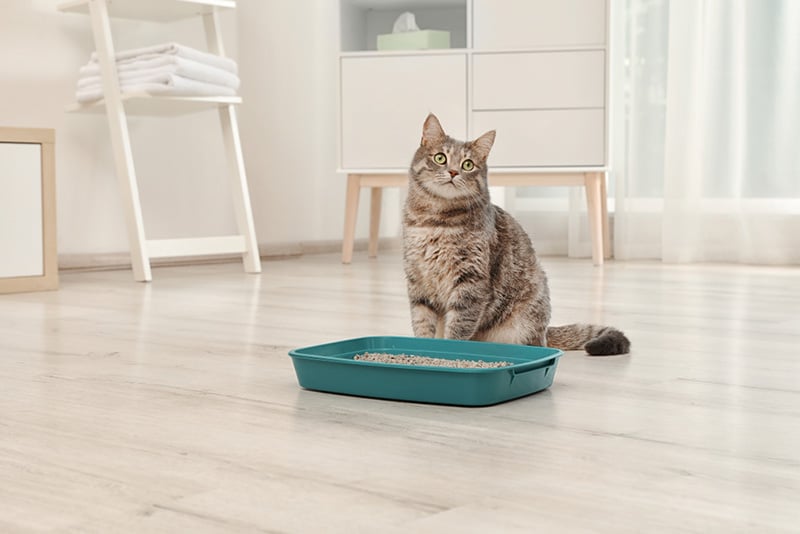
Treatment of FIC
There are several different interventions that can be done that prove beneficial to cats with feline idiopathic cystitis. Cats battling FIC are often uncomfortable, and as a result, pain medication is often administered. Historically, anti-inflammatories and opioids have been used to provide relief. Additionally, fluid therapy to help dilute the concentration of urine is helpful. Medications and pheromones used to reduce stress can be beneficial as well.
Environmental enrichment should be used to reduce stress and facilitate exercise. Examples of beneficial enrichment involve food puzzles, cat trees, and toys.
Additionally, cats diagnosed with FIC may have preferences for litter boxes. Having different options available for the cat to choose from can be helpful. Additionally, the litter box should be routinely cleaned, as some cats will not use a litter box if it is dirty, which can lead to stress and inappropriate elimination.
In cats experiencing reoccurrence of FIC or that are prone to the development of FLUTD, dietary changes may be recommended.
Conclusion
FLUTD is a broad term for different diseases that impact the lower urinary tract, while FIC is a specific disorder that falls under FLUTD. The exact cause of FLUTD signs is unknown in patients diagnosed with FIC; however, stress seems to play a role. There are several interventions that cat owners can do to help support a healthy urinary tract and minimize FLUTD occurrences, but you should always see a vet if your cat is having urination issues and follow their advice.
Featured Image Credit: Andy Gin, Shutterstock

